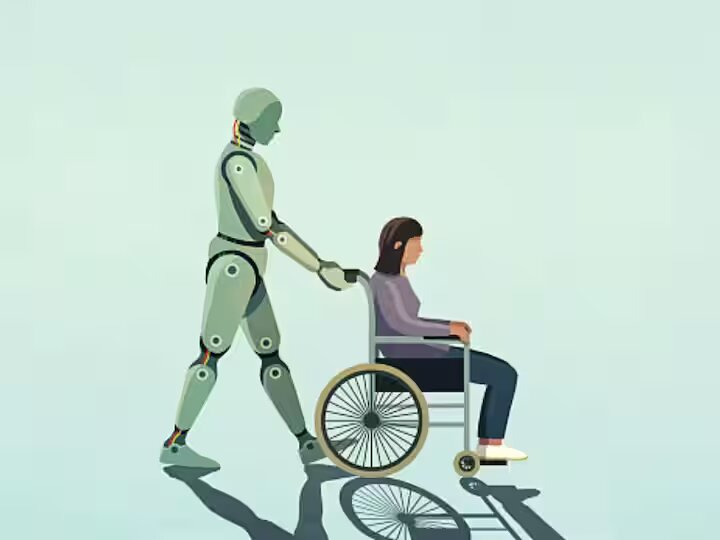Artificial Intelligence (AI) has the potential to revolutionize home healthcare by improving patient care, enhancing efficiency, and empowering individuals to take control of their health. Here are some ways AI is expected to play a major role in home healthcare:
- Remote Patient Monitoring: AI can enable remote patient monitoring systems that collect and analyze health data from individuals in their homes. Smart devices equipped with sensors can continuously monitor vital signs, activity levels, sleep patterns, and other health-related data. AI algorithms can then analyze this data to detect anomalies, identify patterns, and provide timely insights to healthcare providers. This enables early intervention, reduces hospital readmissions, and allows for personalized and proactive healthcare management.
- Personalized Treatment Plans: AI algorithms can analyze large amounts of patient data, including medical records, genetic information, and treatment outcomes, to develop personalized treatment plans. AI-powered tools can assist healthcare professionals in making more accurate diagnoses, predicting disease progression, and recommending tailored treatment options based on individual patient characteristics. This can lead to more effective and targeted interventions, improving patient outcomes.
- Virtual Assistants and Chatbots: AI-powered virtual assistants and chatbots can provide personalized healthcare information, answer queries, and offer guidance on self-care at home. They can assist patients in managing chronic conditions, medication adherence, and monitoring symptoms. These virtual assistants can also offer emotional support and help individuals maintain a healthy lifestyle by providing information on nutrition, exercise, and stress management.
- Medication Management: AI can aid in medication management by providing reminders, tracking medication usage, and monitoring for adverse drug interactions. AI-powered systems can analyze patient data and provide personalized recommendations for medication dosage adjustments based on factors such as age, weight, and comorbidities. This improves medication adherence and reduces the risk of medication errors.
- Predictive Analytics: AI algorithms can analyze patient data to predict the risk of developing certain diseases or health complications. By identifying high-risk individuals, healthcare providers can intervene early, provide preventive care, and implement targeted interventions to mitigate the risk. This proactive approach can lead to better health outcomes and reduced healthcare costs.
- Robotics and Assistive Devices: AI-driven robotics and assistive devices can support individuals with disabilities or limited mobility in their daily activities. These devices can assist with tasks such as mobility assistance, monitoring vital signs, and medication management. They can enhance independence and improve the quality of life for individuals receiving home healthcare.
- Decision Support Systems: AI-powered decision support systems can assist healthcare professionals in making evidence-based decisions. By analyzing patient data, medical literature, and clinical guidelines, AI algorithms can provide insights and recommendations to support diagnosis, treatment planning, and care management. This reduces the risk of errors, enhances efficiency, and improves the overall quality of care.
While AI holds great promise in home healthcare, it’s important to ensure that ethical considerations, privacy, and data security are adequately addressed. Collaborations between healthcare professionals, AI experts, and regulatory bodies are crucial to ensuring responsible and safe implementation of AI in home healthcare settings.











